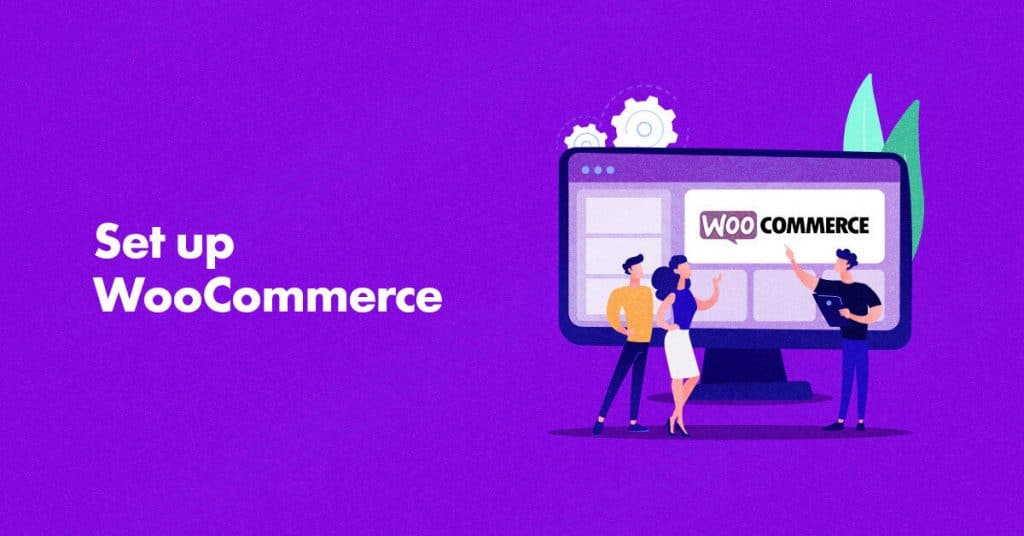Choosing the right blogging platform is important for building a successful blog. But when you’re specifically blogging for your e-commerce website, it’s even more important that you get it right. You’re not just creating a blog for informational purposes, but also to build customer relationships and drive traffic, which will ultimately lead to sales. Hence, you’ll need a blogging platform that best suits your needs. Here, we’ll look into blogging platforms created exclusively for e-commerce websites. You’ll see how blogging can boost your internet visibility, and the best sites to get started.
Key Takeaways
A blogging platform allows you to publish content on a website.
Some blogging pltforms for e-commerce websites include:
- Shopify blog
- Woocommerce
- Squarespace
- Wix
- Weebly
- Medium
- Bigcommerce
- Hubspot CMS
What is a Blogging Platform?

A blogging platform is a service or application that allows you to publish content on a website. Typically, blogging platforms function as both content management systems and website builders. If you want to share valuable content with your audience, a blogging platform is the perfect choice for you.
Read Also: HOW TO BUILD YOUR WEBSITE: Step-by-Step Beginners Guide
Why Do E-commerce Websites Need Blogging Platforms?
At first sight, you may ask why an e-commerce website requires a blog. Trust me, I had the same question when I first started my e-commerce store. But here’s the thing: blogging is more than just sharing personal stories and opinions; it’s also an effective tool for driving traffic, developing trust, and eventually increasing sales. Here are some of the reasons why your e-commerce store needs a blog:
#1. Increased SEO and Organic Traffic
Consider this: someone types a question about your items into Google. Who will appear at the top of the search results if you have helpful, educational blog entries that have been optimized with the proper keywords? That’s correct—your website.
Customers enjoy purchasing from companies they trust. By publishing relevant niche-related content, you establish yourself as an industry authority. Furthermore, it’s an excellent method to demonstrate your knowledge and differentiate yourself from your competitors.
#3. Increasing Customer Trust and Loyalty
A well-written blog can help you create strong ties with your consumers. Whether you’re offering product recommendations, behind-the-scenes stories, or customer testimonials, blogging helps to humanize your company and connect with your target audience.
#4. Boosting Sales and Conversions
Here’s the fun part: blogging is about more than simply boosting traffic; it’s also about converting those people into paying clients. By strategically adding product promos and CTAs to your blog entries, you can direct visitors to make purchases.
Key Features to Look for in Blogging Platforms for E-commerce Websites
Now that you understand the benefits of blogging for your e-commerce firm, let’s talk about what to look for in a blogging platform. After all, not all platforms are the same, and selecting the proper one can mean the difference in your blogging success.
#1. Search Engine Optimization Tools
When it comes to blogging for e-commerce, SEO is your best friend. Look for platforms that include built-in SEO tools such as customizable URLs, meta descriptions, and picture alt tags to help your content rank higher in search results.
#2. E-Commerce Integration Capabilities

Because you’re running an online store, a flawless connection with your e-commerce platform is essential. Choose a blogging platform that integrates well with your e-commerce software, allowing you to showcase products and simply generate revenue directly from your blog.
#3. Customization Options for Branding
Your blog should convey your brand’s distinct personality and style. Look for platforms that provide a wide range of customization possibilities, allowing you to adjust the design and layout of your blog to your brand’s aesthetic.
#4. Mobile-Friendly Design
As more people browse the web on their smartphones, your blog must look fantastic on all devices. Choose a platform that provides responsive design templates, so that your material appears great, no matter how accessible it is.
#5. Content Management Features
As your blog expands, you’ll need powerful content management tools to keep everything organized. Look for platforms that allow you to easily create, edit, and schedule blog entries, as well as manage categories and tags.
#6. Tools for Analysis and Tracking
Finally, select a platform with complete analytics and tracking capabilities. You’ll want to know who is reading your blog, which posts are performing well, and how your blog is helping you achieve your overall company objectives.
Best Blogging Platforms for E-commerce Websites
Alright, now that you know what to search for, let’s look at the best blogging platforms for e-commerce websites. I have personally tested a handful of these platforms for my online store, so you can be confident that they are tried and true.
#1. Shopify Blog
Shopify is a well-known e-commerce platform, and for good reason. Shopify not only provides a great e-commerce platform, but it also has robust blogging capabilities. Shopify’s blogging capabilities allow you to seamlessly integrate your blog with your online store, change the look to match your brand, and optimize your content for SEO. If your e-commerce store is on Shopify, then your brand and website style will remain the same on your blog, which makes life easy.
#2. WooCommerce Blog (WordPress)

If you already use WordPress for your e-commerce site (and let’s be honest, who doesn’t?), WooCommerce is an excellent fit for your blog. WooCommerce integrates easily with WordPress, allowing you to add a fully working blog to your online store with a few simple clicks. Furthermore, with thousands of plugins and themes to choose from, you can completely customize your blog to suit your taste.
#3. Squarespace
Squarespace is a platform that provides outstanding aesthetics and designs to users. The platform has a variety of features to help you design visually attractive web pages. Squarespace, like Wix, is built to make websites, but it is also an excellent choice for businesses looking to develop a blog with a distinct and professional front end. Squarespace provides drag-and-drop capabilities, a grid design, and 3D displacement, making your blog easy to manage as an administrator and enjoyable as a reader.
With so many themes available, you can easily make your Squarespace blog unique and professional, while still reflecting your brand’s tone and voice. While people with less expertise may struggle to surmount the steep learning curve, seasoned businesses should appreciate Squarespace’s capabilities and versatility.
Read Also: SQUARESPACE VS WORDPRESS: Key Differences & Which Is Better
#4. Wix

Wix is a popular site builder, but it also provides reasonable blogging functionality.
In addition to altering the title tag, URL, and meta description, the built-in blogging tool allows you to do much more. You can include a variety of media assets and content blocks, as well as change the look of your page template. The drag-and-drop page editor is also quite easy to use.
If you wish to cross boundaries and attract readers from other countries, there is a useful translation tool available. Furthermore, this may all be integrated into a Wix-hosted website with e-commerce capabilities.
If you need assistance with your Wix website or blog, customer service is available 24 hours a day, seven days a week, and they are highly rated.
#5. Weebly
Weebly is a popular website that is ideal for novice businesses with limited blogging experience. The website provides user-friendly drag-and-drop features, allowing you to construct a personalized blog quickly. Not to mention that Weebly provides hundreds of themes and configurations, many of which are entirely free. As a result, if you have a limited marketing budget but want to reach new audiences through your blog, Weebly is a more interesting option than WordPress and Squarespace.
However, Weebly does not have as many features as you would expect from a high-quality blogging platform, and while it is suitable for novices, it may appear unsophisticated to seasoned e-commerce business owners. You also have to spend $4 a month to purchase the whole domain for your blog, or $8 if you want to remove Weebly’s mark.
#6. Medium
If you need a platform for seasoned bloggers, Medium is an excellent choice for authors and businesses wishing to broaden their message and reach new audiences. Medium’s popularity stems from its ease of use and basic yet appealing design aesthetic. In addition, Medium allows you to approach your audience and engage with people who are interested in your topic. You’ll also be able to access a variety of free features and customizations.
However, Medium does not allow users to monetize their blogs, which may result in a wasted opportunity for e-commerce blogs with a large viewership.
#7. BigCommerce
Big Commerce is an e-commerce platform comparable to Shopify that allows clients to create a store, market their products, and track productivity all from one place.
BigCommerce also allows you to blog, as does Shopify. However, it is a rather simple application that allows you to accomplish only the basics, such as updating metadata and uploading images, videos, and tags. However, you may quickly publish content across several social media sites and manage many authors.
The primary issue is that you can’t add categories to blog entries, which makes it difficult for users to discover the content they want, especially if you write regularly. Additionally, you only have rudimentary SEO features.
#8. HubSpot CMS
HubSpot is unlikely to have come to mind as a blogging platform. HubSpot is a pretty complicated marketing engine, but the good news is that it includes blogging functionality and a variety of other tools for free. Naturally, if you want more features, you will need to subscribe to a premium subscription.
HubSpot allows you to create blog material and use automated email marketing to notify subscribers about new posts. There’s an idea generator for when you’re looking for new blog content, and the built-in SEO capability can help you optimize your blog entries.
Furthermore, HubSpot is specifically designed for collaborative work, so you can share, edit, and accept comments from colleagues before posting a company blog article.
The HubSpot platform isn’t as easy to use as others, but it’s highly strong and provides plenty of options for a huge firm. They provide exceptional customer service, with 24/7 phone, live chat, and email assistance available. They can even serve customers in languages other than English.
Tips for Successful Blogging on E-commerce Platforms
Now that you’ve decided on the ideal blogging platform for your e-commerce website, it’s time to start generating content. Here are a few suggestions to help you get started:
#1. Create a Content Strategy

Before you begin writing, spend some time planning out your content strategy. Consider your target audience, the things they are interested in, and how you can add value through your blog postings.
#2. Optimize for SEO
Remember to optimize your blog entries for SEO. Use relevant keywords, make appealing meta descriptions, and add a lot of internal and external connections to improve your search engine results.
#3. Promote Your Post
After you’ve published your blog content, don’t just sit back and wait for traffic to come in. To increase the number of people who see your content, promote it using social media, email newsletters, and other methods.
#4. Engage with Your Audience
Finally, remember to engage with your audience. Respond to comments, answer questions, and promote discussion to foster a loyal community around your site.
Can I Blog On Any E-Commerce Website?
Yes, many e-commerce platforms offer built-in blogging features or allow integration with popular blogging platforms like WordPress. However, some platforms may have limitations, so it’s essential to choose one that aligns with your blogging needs and goals.
How Do I Add A Blog To My E-Commerce Website?
To add a blog to your e-commerce website, select a platform like Shopify or WordPress/WooCommerce, integrate it with your site, create relevant content, optimize for SEO, and promote to drive traffic and sales.
Does WordPress Pay For Bloggers?
WordPress itself doesn’t pay bloggers. However, bloggers can earn through ads, sponsored content, affiliate marketing, or selling products/services on their WordPress site.
Can I Transfer My Blog To Shopify?
Yes, you can transfer your blog to Shopify. You can either manually migrate your content or use third-party apps like “BlogFeeder” to import your blog posts, ensuring a smooth transition.
How Do I Turn My Shopify Into A Blog?
To turn your Shopify into a blog, navigate to “Online Store” > “Blog Posts.” Add new posts, organize them into categories, customize layout and design, then publish. You can also integrate with WordPress for advanced blogging features.
Is Shopify Better Than WordPress?
It depends on your needs. Shopify is excellent for e-commerce, offering built-in features. WordPress is more flexible overall, with plugins, but requires more setup for e-commerce functionality. Choose based on your specific requirements.
What Is The Difference Between A Blog and An E-Commerce Website?
A blog primarily shares content and information, while an e-commerce website facilitates online transactions for buying and selling products or services.
In Conclusion,
That’s all you need to know about blogging platforms for e-commerce businesses. By selecting the correct platform, optimizing your content for SEO, and connecting with your audience, you can establish a successful blog that drives traffic, builds trust, and eventually increases sales for your online store.
- WEBSITE MANAGEMENT: What It Is & Why You Need It
- HOW DOES SHOPIFY WORK: The Complete Guide
- COMMERCE MANAGER: What It Is & How to Become One
- E-COMMERCE BUSINESS INSURANCE: Best Coverage and All You Should Know






